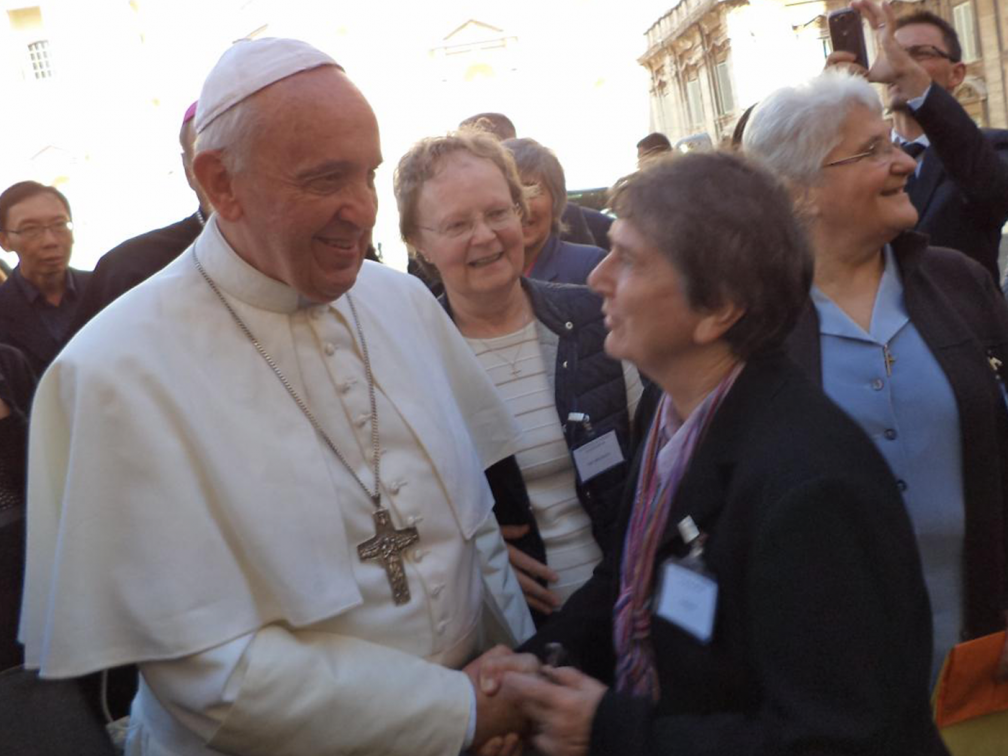Who was Josephine Bakhita? She was kidnapped at the age of nine and sold into slavery in her native Sudan, experiencing the moral and physical humiliations associated with slavery. In 1882 she was bought for the Italian Consul and eventually found a new life in Italy with a kind family. She became a Canossian Sister and dedicated her life to helping the poor and testifying against slavery, before dying on 8th February 1947.
The eradication of modern slavery and the pastoral care of victims is a priority for the Catholic Church. Pope Francis continually draws the attention of the Church and the wider world to it. He has described human trafficking as “a crime against humanity” and has called for global and local cooperation between the Catholic Church and law enforcement agencies to address the problem.
Human trafficking is the fastest growing form of slavery today, and only a small percentage of the 2.5 million people trafficked globally are given help and protection by the authorities. Trafficking is big business. The UN estimates that it is a $36bn global ‘industry’, as lucrative for those controlling it as the drugs and the arms trade. The pursuit of profit is the key motivation. Women and girls are particularly liable to end up in exploitative forms of work in domestic settings, prostitution and mail-order brides. Major causes of trafficking include poverty and conflict, but also discrimination against women and the poor, and inadequate educational and employment opportunities. The Internet has become its quick and easy vehicle and a means for traffickers to market women and children.
Trafficking is close to home for us in Britain. In June 2019 the Conference of Religious in England and Wales organised a day in West London on Trafficking, attended by around 60 members of religious congregations. They were told that on their walk from the station they had passed several houses where victims of trafficking were recently released. Women religious in particular have set up safe house programmes for victims who have been freed and they campaign for legislation that will criminalise the traffickers. The latest Global Slavery Index estimates that 136,000 people in the UK are experiencing modern-day slavery.
RENATE, Religious in Europe Networking Against Trafficking and Exploitation, is a network headed by Sr Imelda Poole, a British Loreto Sister of the Institute of the Blessed Virgin Mary (IBVM), who received an MBE award at Buckingham Palace in November 2018 for her work to end modern slavery. Based in Albania since 2013, she has established centres to work on prevention, advocacy, awareness, and the rescue, protection and rehabilitation of trafficked and exploited women. It is involved in 31 countries in Europe with 139 anti-trafficking networks. Sr Imelda Poole says that in her work with RENATE she has seen three changes since the lockdown began in March 2020. One is a massive increase of hunger, another is that counselling of trafficking victims is now largely online, and the third is an explosion of children going online unsupervised, leading to an increase in sexual exploitation.
Women religious have successfully engaged the Catholic hierarchy in their mission. Now an international movement has been set up by Pope Francis, called the Santa Marta Group. The networks of Religious and their co-workers across the world, comes together in TALITHA KUM, founded in Rome in 2009. Trafficking is a sign of our times and hence the Church is committed to tackling it.
A Prayer for victims of slavery and human trafficking
Lord, we ask you to . . .
Help the migrant and seasonal farmworkers and their families who are often victims of labour trafficking in harvesting crops, we pray . . .
Free the vulnerable migrants at our borders who are exposed to the danger of being trafficked, we pray . . .
Open the eyes of parents who think their kids are safe and protected just because they are home with their electronic devices, we pray . . .
Give justice to the women and men who are hired in hotels and restaurants and forced to work excessive hours, with few breaks and no pay, we pray . . .
Free us from the sexual and economic exploitation which occurs because of human greed and profit, we pray . . .
Secure safety and justice for the very young boys and girls who are enslaved in dangerous work on cocoa farms and in conflict mineral mines in Africa, we pray . . .
Come to the aid of the parents of a missing child who was taken by a stranger she/he met through online gaming, we pray . . .
Remember those who work to eliminate factors that contribute to human trafficking, we pray . . .
Help predators to be touched by God’s love so that their hearts may be transformed, we pray . . .
All-powerful God, you are present in the whole universe and in all of your creatures. Pour out upon us the power of your love that we may protect life and beauty.
Fill us with peace, that we may live as brothers and sisters, harming no one.
O God of the poor, help us to rescue the abandoned and forgotten of this earth, so precious in your eyes.
Touch the hearts of those who look only for gain at the expense of the poor and the earth.
God of love, show us our place in this world as channels of your love for all people of this earth.
Encourage us, we pray, in our struggle for justice, love and peace.
Amen.
Ellen Teague adapted from Prayers in Laudato Si’

